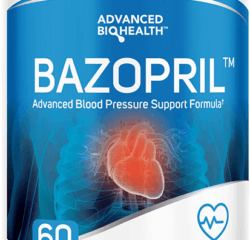I find it vital to not just talk about what’s on your plate, but also how it affects your heart. A Heart Healthy Diet Includes What? It transcends the mere act of choosing certain foods over others. It’s about a holistic understanding of how these foods contribute to the intricate workings of your cardiovascular system.
At its core, A Heart Healthy Diet Includes What? It should be rich in fruits, vegetables, whole grains, and lean proteins. These food groups bring a plethora of nutrients essential for maintaining a strong and efficient heart. For example, the vitamins and minerals in fruits and vegetables are known for their role in heart protection.
Equally important is fiber, often found in whole grains, which plays a crucial part in reducing bad cholesterol levels—a key factor in preventing heart blockages. And then there are the unsung heroes of A Heart Healthy Diet Includes What? Yes, it should include healthy fats. Your heart actually needs fats—specifically omega-3 fatty acids and monounsaturated fats which support healthy blood vessels and reduce inflammation.
Sodium is another headline grabber. While essential in small amounts, it’s famous for its not-so-glamorous role in raising blood pressure when overindulged. That’s why smart sodium consumption is a cornerstone of heart-healthy diets, helping you keep blood pressure in a happy range.
Balancing all these nutrients can seem like a juggling act, but it propagates a strong, healthy heart. And when your heart’s healthy, your entire body feels the benefit. Remember, heart health is part of a comprehensive lifestyle—food is just the beginning.
In the next segment, I’ll provide you with PRACTICAL TIPS to navigate grocery-store aisles, plan your meals, and cook up dishes that not only taste fantastic but also support your cardiovascular health. You’ll learn how easy it is to incorporate these heart-healthy choices into your everyday life.
Be sure to check out this other post about your diet, Diet After Heart Bypass Surgery.
Practical Tips to Incorporate Heart-Healthy Foods into Your Meals

I understand it can be challenging to overhaul your diet, especially if you’re unsure where to begin. Making heart-healthy choices doesn’t mean breaking up with flavor—it’s about smarter decisions. Here’s how you can get started.
First up, shopping smart is your ally in this. Always scan food labels for sodium, added sugars, and unhealthy fats. Look for items high in fiber, protein, and healthy fats instead. Think whole-grain bread instead of white, and unsalted nuts over chips.
Meal planning is not just a trendy activity; it’s your playbook for success. Carve out time each week to devise a menu. Balance variety with heart-healthy staples like salmon, berries, and spinach. And yes, planning ahead minimizes waste—both food and financial.
Cooking can be intimidating, but it’s crucial for control over what you eat. Stick to grilling, baking, or steaming rather than frying. Use herbs and spices for flavor instead of relying on salt or butter. Your taste buds will adapt and eventually come to prefer these healthier choices.
Here’s a quick trade secret: swap out butter for olive oil or even avocado. It’s a simple switch that pays dividends for your heart. These swaps sneak in the right kinds of fats without sacrificing the satisfaction of a well-cooked meal.
Reducing sodium might seem like you’re signing up for bland meals, but it’s more about letting the natural flavors of foods shine through. When you do reach for the salt, choose iodized or sea salt, and use it sparingly. Your blood pressure will thank you.
And don’t forget about snacks—they’re undercover as either foes or allies of heart health. Make allies by opting for fresh fruit, vegetables with hummus, or a handful of almonds.
These tips can go a long way, but remember, every step counts. It’s not about being perfect; it’s about making more heart-healthy choices than you did yesterday. And now, as you’re armed with these tools to upgrade your meals, let’s move on to another crucial ingredient for heart health—lifestyle changes.
Did you know that Cavemen had normal blood pressure

Did you know our ancestors enjoyed normal pressure?That’s right.
They chased wild mammoths and lived in caves. But they had healthy hearts and had no strokes.
And modern scientists from the University of Virginia just discovered why.
It’s all because they had a “signaling molecule” in their tiny kidney cells that we don’t have.
But the good news is — there’s an easy way to restore your kidneys’ “signaling molecule” by using something called ‘Nectar of Gods’.
That’s because the ‘nectar of gods’ is proven by modern science to help get your blood pressure normal again.

Beyond Diet: Lifestyle Changes to Boost Your Heart’s Health

I recognize the importance of a nutritious diet in maintaining a strong heart, but I must stress that good eating habits are just one piece of the puzzle. A truly holistic approach to heart health involves a blend of positive lifestyle decisions.
Physical activity is non-negotiable when it comes to supporting your heart. Regular exercise, whether it’s brisk walking, cycling, or swimming, helps to strengthen the heart muscle and improve circulation. I urge you to aim for at least 150 minutes of moderate-intensity aerobic activity per week.
Managing stress is also critical. Chronic stress can lead to high blood pressure and other cardiovascular risks. Engaging in relaxation techniques like mindfulness, yoga, or even simple deep-breathing exercises can make a meaningful difference.
Your heart’s well-being is closely tied to your weight. Maintaining a healthy weight reduces the strain on your heart and decreases the risk of heart disease. A balanced diet coupled with regular exercise is key to weight management.
Additionally, consider your alcohol intake. Moderate consumption can potentially offer some heart benefits, but it’s important to know your limits and stick to them. If you don’t drink, there’s no reason to start for the sake of heart health.
For those who smoke, quitting is IMPERATIVE. Smoking is a major risk factor for heart disease. I cannot overemphasize the importance of this single change – it can be life-saving.
Lastly, keep up with routine health screenings. Regular check-ups can catch potential problems early and are crucial in managing your heart health proactively. Work with your healthcare provider to determine the best screening schedule for you.
In conclusion, a heart-healthy lifestyle is more than diet alone. It’s a multifaceted commitment that includes exercise, stress management, smart choices regarding alcohol and tobacco, and regular health check-ups. Embrace these changes not just for your heart, but for your overall quality of life.

